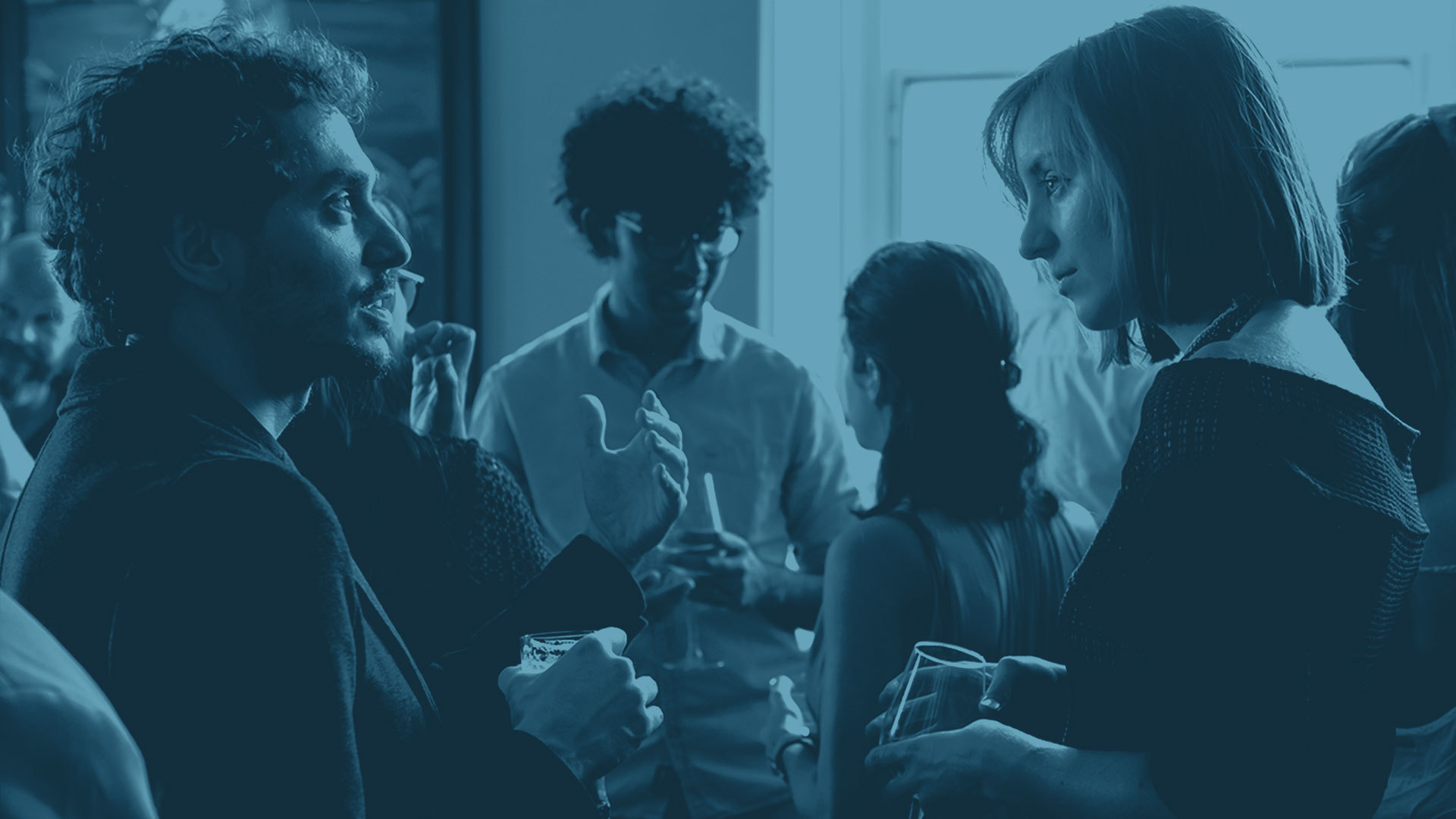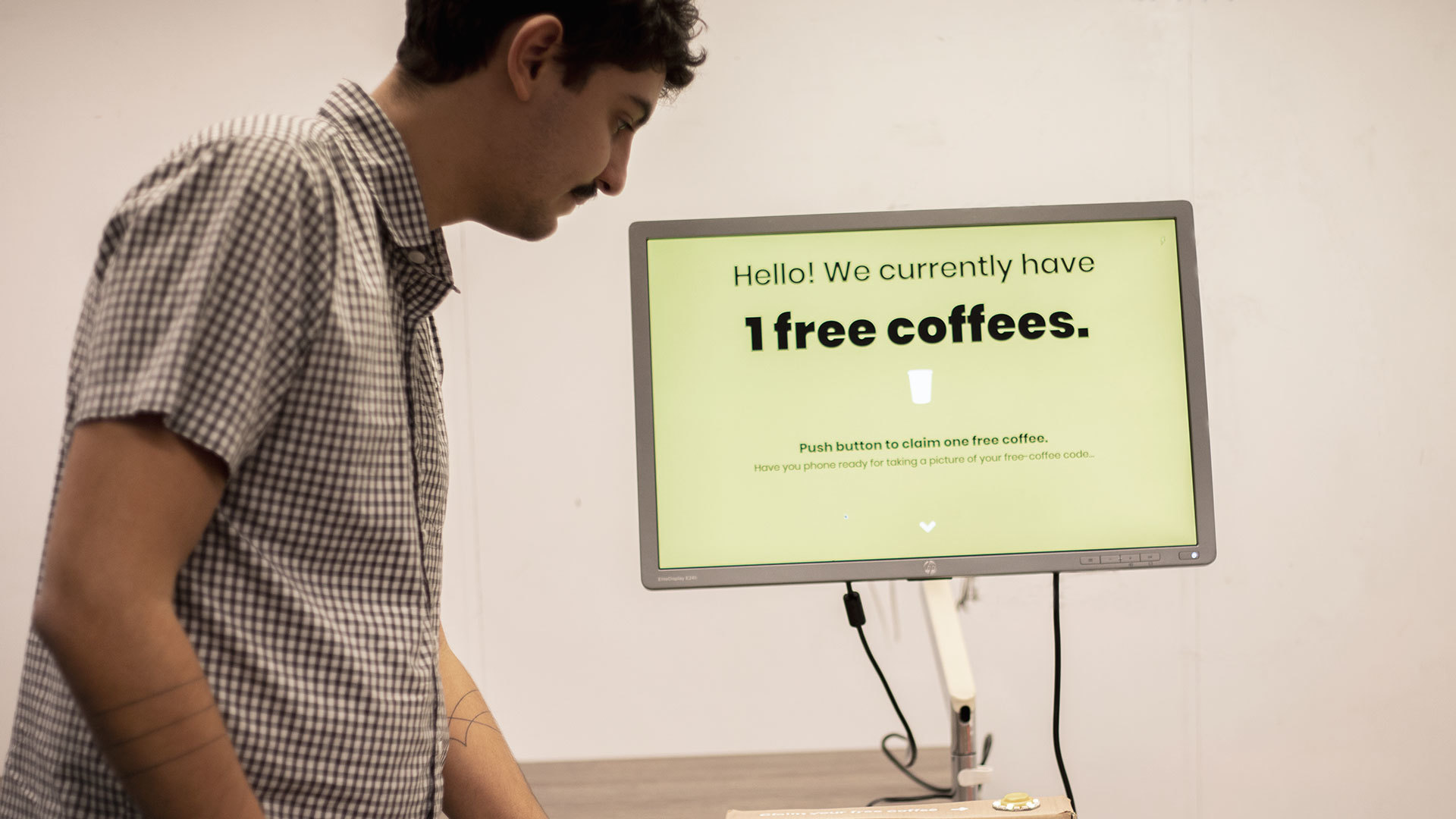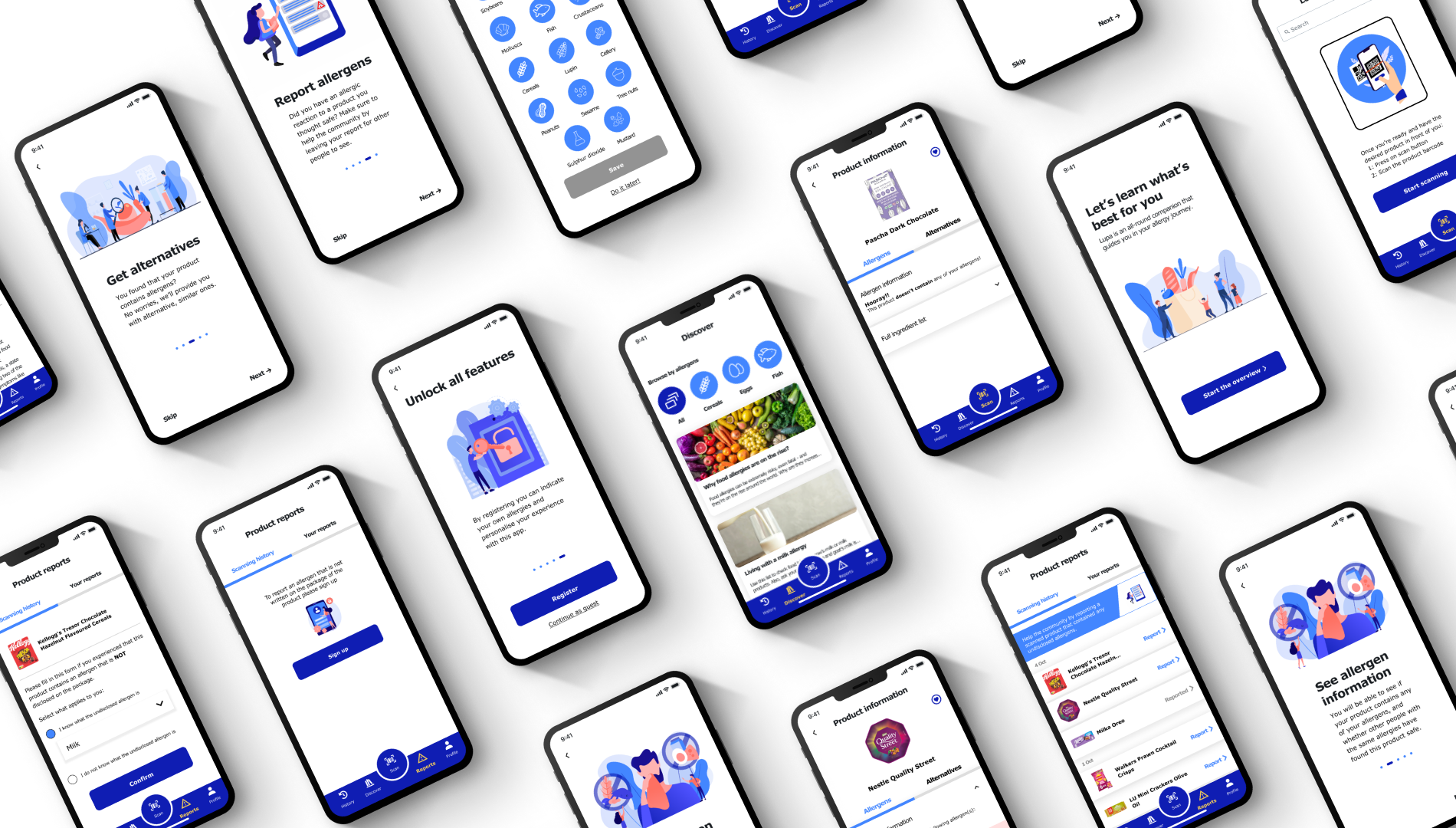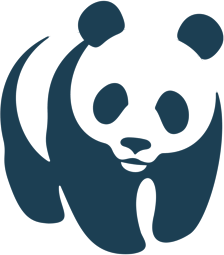
WWF Delta Rangers
Creating a digitally enhanced nature experience
-
Client:
WWF – Ellen Hendriks, Paul Zevenboom
- Team:
-
Disciplines:
Concept, UX/UI, Visual Design
-
Schoolyear:
2017-2018
How can you digitally enhance a nature experience? What can be the added value of geo content for families with children?
The challenge
As one of the key partners of the program, WWF asked us to design a digitally enhanced nature experience. How could these apparent opposites – the artificial versus the natural – be able to reinforce one another? Primary goal: to create awareness of WWF's active role in local nature preservation and development, and its relevance to the world we live in.
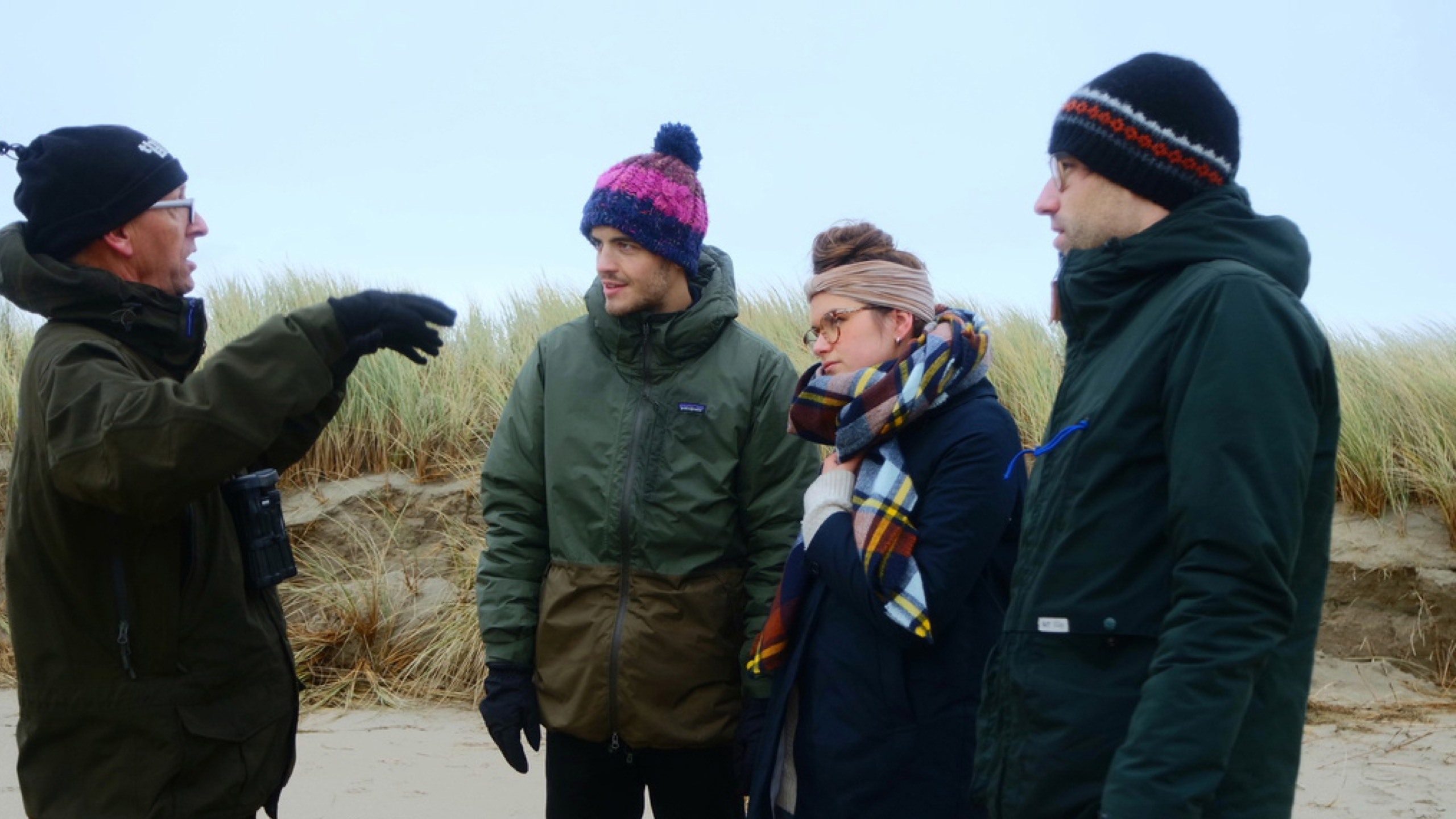
On-site family experience
The project specifically targeted families with children in the age range of 6-12. Doing research, it soon became clear that the design for our location based game had to start with the power of direct interaction with nature itself.
Like most of us, these children already spend way too much time behind screens. So if we truly want this generation to appreciate the value of nature, there's nothing like experiencing it for themselves. Clearly, a location based game was the way to go.
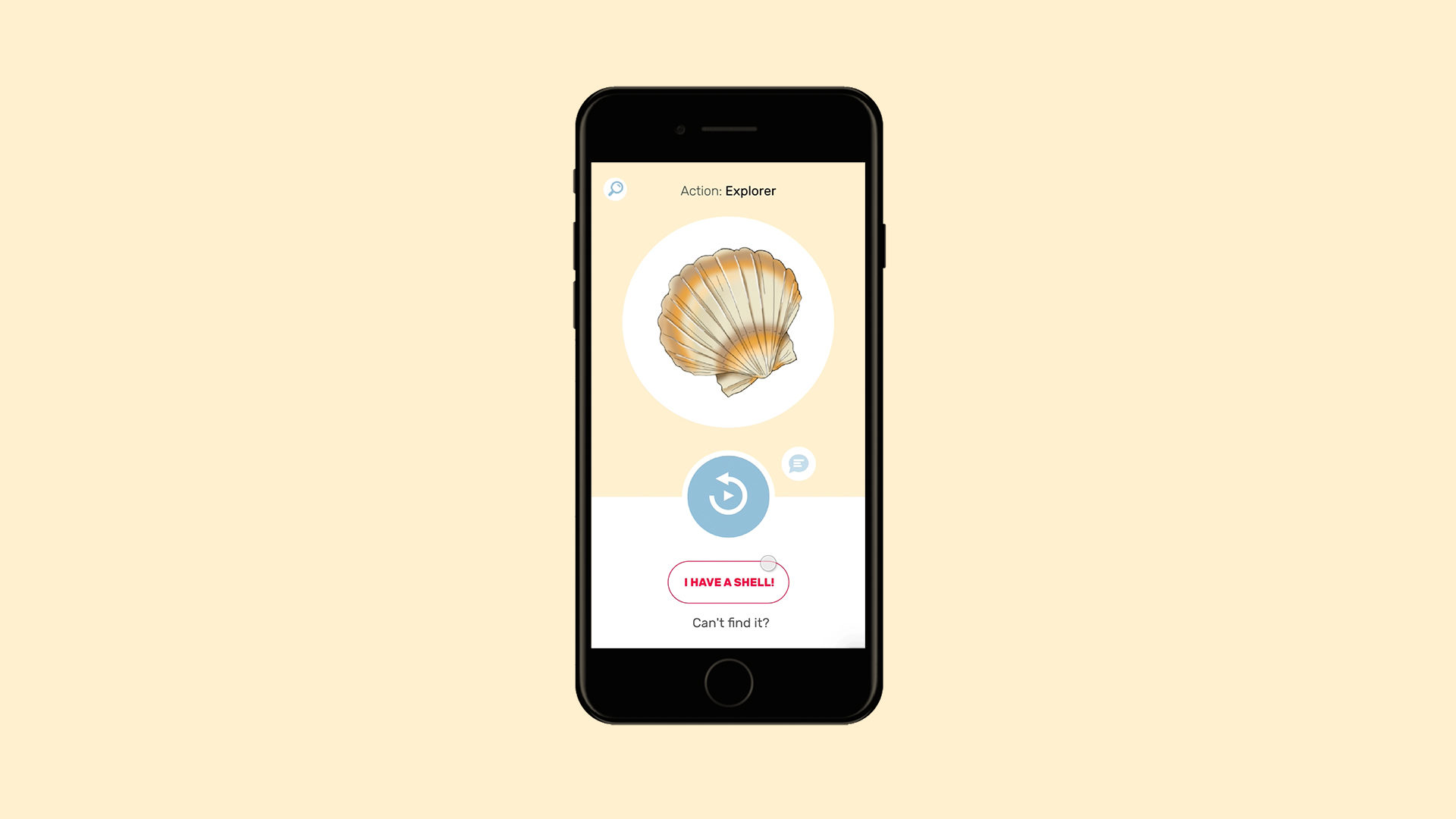
Kids are encouraged to look for shells
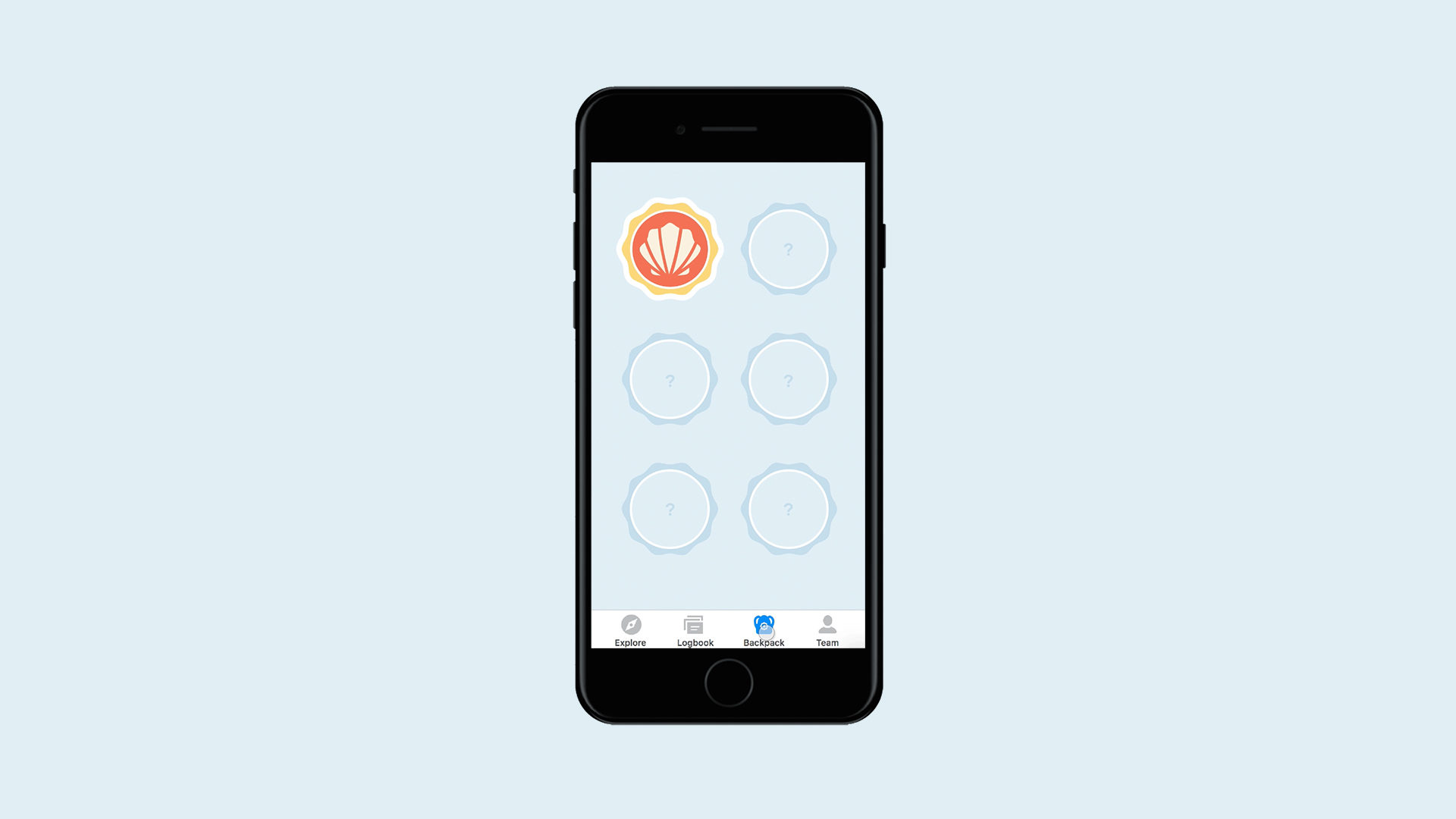
Once found, they add the shell to their inventory
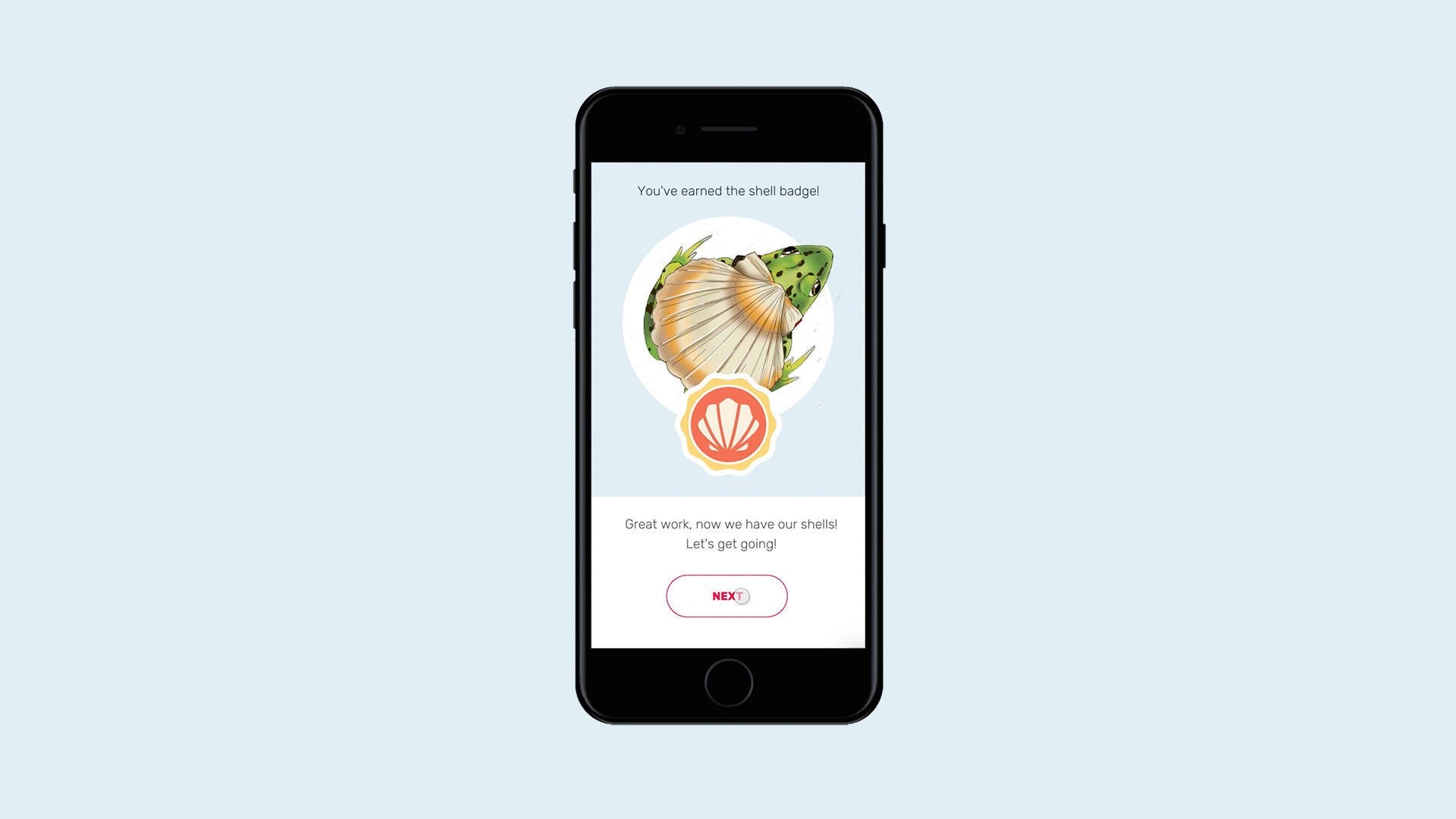
The narrative interacts with the inventory
Doing research, it soon became clear that our game had to start with the power of direct interaction with nature itself
Venturing into the wild
Together with WWF, the Haringvliet Delta was selected as there is a lot going on this year. This allowed us to put these changes, like the opening of the Haringvliet dam, center stage in the story we would be telling. All from the perspective of the animals that inhabit the area.
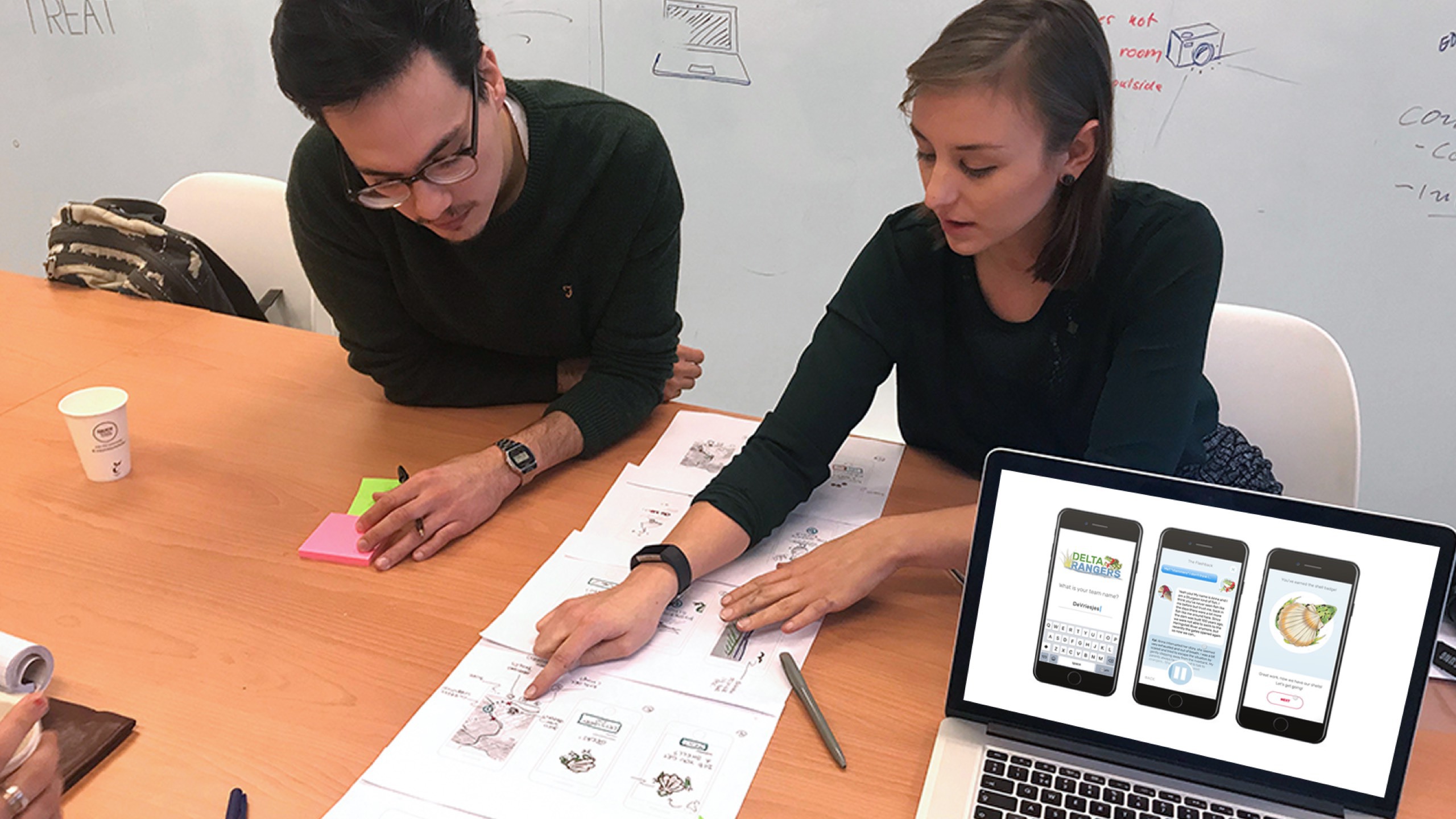
Meaning before medium
As Digital Design students it's easy to be tempted by upcoming technologies like AR and VR. But for children that grow up with an overload of technology, the only way to spark engagement is by creating meaning. In addition to coming up with the narrative, striking the right balance between the natural and the artificial was therefore crucial.
After comparing different technological and conceptual directions, we decided on the development of an app that:
- allows families to embark on an adventure together as true 'Delta Rangers'
- tells the story of the animals using primarily audio, preventing a disconnection from the surroundings
- allows you to earn 'badges' by completing direct interactions with nature itself
- gives a sense of agency to children, as they take on the role of biologist, explorer or team leader
- provides an added educational layer about the animals you encounter
- allows you to save your journey, retrace your steps, share your experience through a web-based platform – thus maximizing the reach of WWF's activities
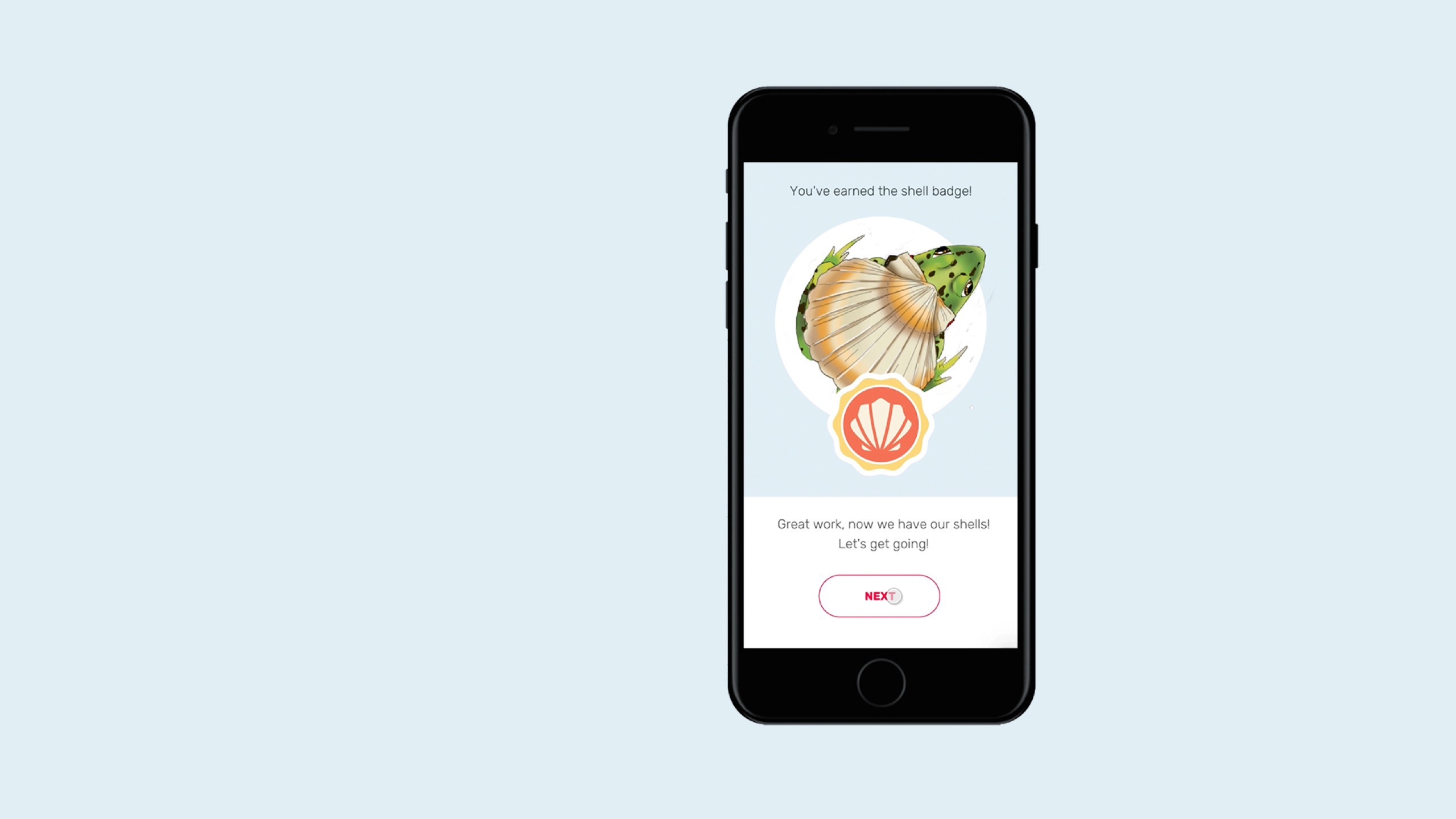
The result
All in all we can look back on a successful project. And the fact that WWF decided to allow a second MDD team to keep working on it throughout the final semester, pretty much says it all.
The ability to work on a meaningful case like this, for a client like the World Wildlife Fund, was a truly satisfying experience. We're already looking forward to our classmates' iterations, and the results from the first user testing sessions, when the concept will truly be put to the test!
